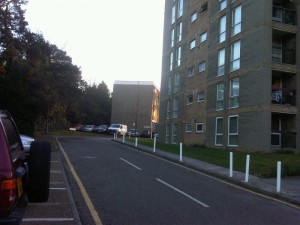It fell to Richard, as vice-chair of Sutton’s Housing, Economy and Business Committee, to make the case, when the Committee met on 18 June, for the scrutiny report prepared by the Committee on the Council’s procedures to deal with those about to become homeless.
Richard told the Committee that homelessness – being put in bed and breakfast accommodation often far from Sutton – is a terrible experience, especially for families. It can lead to people losing their jobs if they are too far away to travel back every day. It can lead to mental breakdown, marriage breakdown, and the disruption of the education of children. Our first priority is to avoid this, and it is not too much to ask landlords to wait a week or two in some cases before a property is vacated as a last effort is made to find somewhere else to live.
The report commended the approach that the Council has traditionally used, and was implicitly critical of modifications to the procedure introduced in Feruary to respond to some criticisms of the approach that, the scrutiny report concluded, were not well founded.
This was the first scrutiny study undertaken by one of the Council’s subject committees established when governance arrangements were revised last year. The Committee studied a number of documents when it met on 19 March, and listened to a variety of views, from Council officers, from officers from a neighbouring authority (Croydon) and a landlord who voiced criticisms of the Council’s approach. It was evident from these documents that Sutton’s approach is identical to that of most, indeed almost all, London Boroughs.
The report describes the procedures followed by the Council. To evict a tenant from a property a landlord has to go through a legal procedure with a number of steps commencing with a notice to quit and ending with the execution of a bailiff’s warrant.
Richard, whose daughter works for the largest charity supporting the homeless in the West Midlands, commented:
“This is a procedure involving a private landlord and a private tenant, so it is worthwhile just reminding ourselves why the Council gets involved atall. This is because at the end of the procedure, if someone has no other accommodation and is homeless and in priority need, the obligation falls on the Council to find them accommodation. This usually means putting them in bed and breakfast accommodation, something that can be soul destroying for the family or individual concerned, and an expensive procedure involving costs that ultimately fall on our own Council tax payers.
So, the Council has a unit doing all in its power to assist those threatened with homelessness to find new accommodation. The report shows that in many cases they are successful, and that alternative accommodation is often found quite late in the eviction process. If they are not successful, at the end of the process the tenant will be put into bed and breakfast accommodation, but this is rightly regarded as a last resort to be undertaken when all else has failed. The process followed is described in Appendix A of the paper, and the first recommendation in the paper is to support the approach described, on the basis that this offers the best chance of minimising the numbers made homeless, thus minimising both the cost and human misery that homelessness involves, but correctly discharging the Council’s legal duties to those threatened with homelessness.
The criticisms of the approach, first voiced by Councillor Shields at a Council meeting, picked up by the local paper in the memorable but misleading headline “Council says wait till the bailiffs arrive”, and repeated by at least one landlord, appear to be that by waiting to the end of the process the Council runs the risk of upsetting landlords and thus discouraging landlords from working with the Council. It was also suggested that the tenants are disadvantaged by having a Court judgement against them. But the evidence in the paper (paragraphs 2.18 to 2.30) is that the Council maintains good relations with landlords, and that the Court judgement relates to possession of a property and does not affect the standing of the individual or family made homeless.
Officers told us, however, that for a period from February 2013 a modified approach was trialled, described in Appendix B, involving moving earlier to accept someone was homeless if it appeared that there was no realistic prospect of finding alternative accommodation. It is not often that, in assessing policy options, one can compare the outcome from two periods where different policies were tried. But the evidence in the paper (see paragraphs 2.16 and 3.8) is that the modified approach led to an increase in homelessness, as accommodation is often found for those threatened with homelessness quite late in the process.
So the recommendations support our continuing to follow the procedures described in Appendix A, but also call on officers to continue to work closely with landlords, keep the trends and statistics under review, and report back to us in due course.
Homelessness – being put in bed and breakfast accommodation often far from Sutton – is a terrible experience, especially for families. I know from my casework that it can lead to people losing their jobs if they are too far away to travel back every day, to mental breakdown, to marriage breakdown, and to the disruption of the education of children. Our first priority is to avoid this, and it is not too much to ask landlords to wait a further week or two in some cases before a property is vacated as a last effort is made to find somewhere else to live.”

